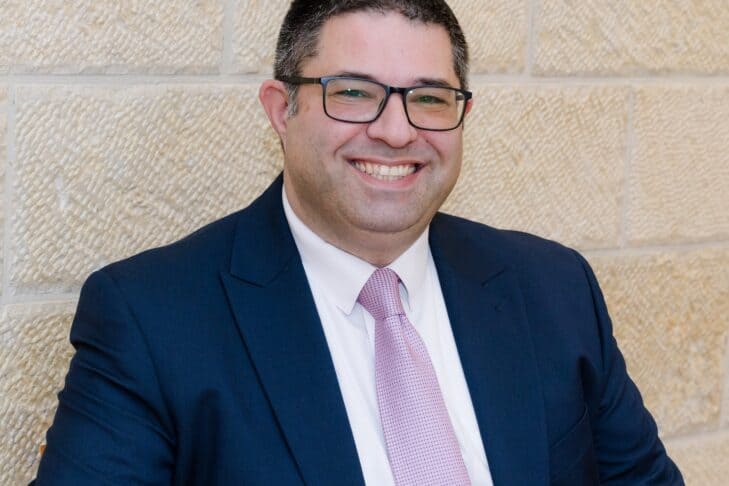If you don’t know a rabbi or belong to a congregation but want to connect to Judaism, ask questions or are seeking spiritual counseling, there is an option: the “virtual rabbi.”
In many cases, the virtual rabbi was a product of the pandemic. But the concept has persisted. The virtual rabbi model also works for Jews who don’t belong to a congregation, find it hard to travel during bad weather or are dealing with disabilities and aging. And there are those, post-pandemic, who are more comfortable live-streaming or Zooming services, classes and other events. Still others learn with or seek guidance from a virtual rabbi as a spiritual supplement to their congregational life.
As Rabbi Gerson Winkler told Moment Magazine, “It was Moses who first invented the idea of virtual Judaism…as is written: ‘Not with you alone do I enact this covenant…but for those who are standing here with us today…and that are not with us here today (Deuteronomy 29:14).’” A midrash on the Book of Psalms written in 1613 BCE tells us: “The Holy Blessed One says, ‘When you pray, pray in the synagogue in your village. If you cannot pray in your synagogue, pray in your field. If you cannot pray in your field, pray in your house. If you cannot pray in your house, pray on your bed. If you cannot pray on your bed, think it in your heart.’”
“The pandemic pushed communal Jewish life into online spaces,” Rabbi Dr. Laura Novak Winer told Moment. “I wrote in 2018 that using technology to preserve and deepen relationships can be ‘a powerful tool to create intense moments of connection and transcendence.’ While physically distant, many communities have become spiritually closer.”
Rabbi Johnny Solomon or, as he prefers to be addressed, Rav Johnny, is a quintessential virtual rabbi. Originally from London, he received rabbinic ordination from the Montefiore Kollel. In 2012, he made aliyah with his wife, Donna, and their five daughters. He provides online services under the title #theVirtualRabbi, including spiritual coaching, serving as a consultant on halacha (Jewish law) and teaching Jewish texts. He provides group and one-on-one learning for men, women and couples around the world and has great respect for how Jews experience and express their Jewish identity in different ways.
Rav Johnny points out that although there are websites run by rabbis, they sometimes involve “anonymous questioners posting queries to rabbis who don’t know them.” He prefers to connect directly with those he serves. People can communicate before their meeting and explain what they want to discuss. The rabbi is thus better able to prepare for each session.
Rav Johnny’s motivation for his unique rabbinate stems from the fact that many Jews are losing their connection to Judaism. “Some would like to be more connected,” he said, “but either do not have a rabbi or aren’t comfortable with the one they have. Using what has been called ‘Rabbi Google’ is not helpful and doesn’t involve a personal relationship.”
Today there is also a shortage of non-Orthodox rabbis. In a recent Tablet Magazine article, “Wanted: More Rabbis,” writer Paula Jacobs pointed out that enrollment in rabbinical schools has significantly declined in recent years; “…the demand for rabbis exceeds supply,” she noted. Jacobs quoted Rabbi Jacob Blumenthal, CEO of the Rabbinical Assembly and United Synagogue of Conservative Judaism, who said, “There is greater demand, along with smaller numbers of rabbis being ordained. Also, congregations want more rabbis to do education and engagement work. So congregations that used to think about one rabbi for 500 households now understand that in a time when it’s about relationships, they need more rabbis to serve their communities.”
This post has been contributed by a third party. The opinions, facts and any media content are presented solely by the author, and JewishBoston assumes no responsibility for them. Want to add your voice to the conversation? Publish your own post here. MORE



